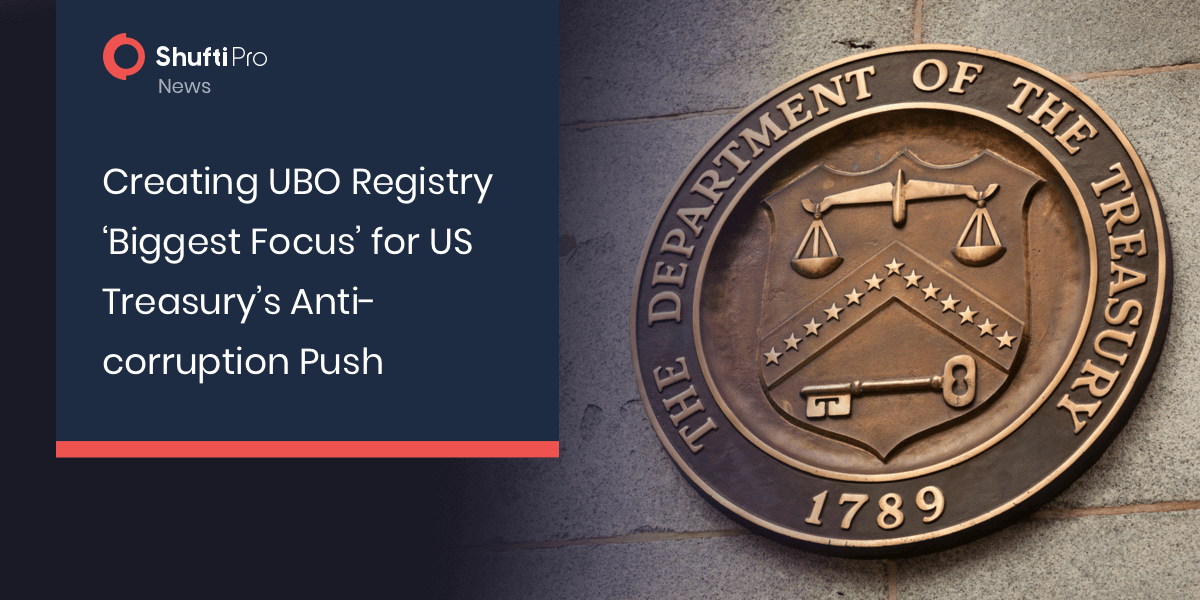Creating UBO Registry ‘Biggest Focus’ for US Treasury’s Anti-corruption Push

As part of the US government’s AML reform plan, an ultimate beneficiary ownership register will be created to combat money laundering and other financial crimes.
At an anti-money laundering conference held by the Association of Certified Anti-Money Laundering Specialists (ACAMS) this week, a senior official of the US government reported the primary focus of the Biden government is to create a registry of individuals that run legal entities.
“Our key priority — our biggest focus — is building a beneficial ownership registry that’s not only useful to U.S. law enforcement, but useful to our financial institutions as well,” stated Scott Rembrandt, deputy assistant secretary for strategic policy at the U.S. Treasury Department. “That, we believe, can help us do more to combat corruption than anything.”
He further expressed that business entities are often misused by perpetrators for illegal purposes, and thus the Ultimate Beneficiary Ownership registry is needed to fill the gap in the country’s Anti-Money Laundering (AML) system.
Rembrandt, who also heads the US delegation to the global AML regulator Financial Action Task Force (FATF), stated that the step aligns with the US anti-graft campaign which aims to outline ways of combating corruption-related financial crimes, take action related to the flow of illegal funds into real estate, and find new ways to cooperate with foreign partners.
By forming an Ultimate Beneficiary Ownership registry, the government and the private sector can effectively verify partner entities and establish strong business ties. As PEP and UBO verification promotes transparency between regulators and corporate entities, a smooth and efficient process will be created for combatting money laundering and related activities.
“Developing rules that will bring into force the requirements of the Corporate Transparency Act (CTA) — legislation enacted by Congress on January 1 as part of sweeping AML reforms — is Treasury’s top priority”, Rembrandt said.
Under the FATF’s mandatory regulations, all business entities have been mandated to verify client identities prior to onboarding them. In case of any suspicious activity, transaction, or other fraudulent attempts, a suspicious activity report needs to be filed with the respective country’s financial intelligence unit.
Suggested Read: Business Verification: A new line of Defense against Fraudsters











